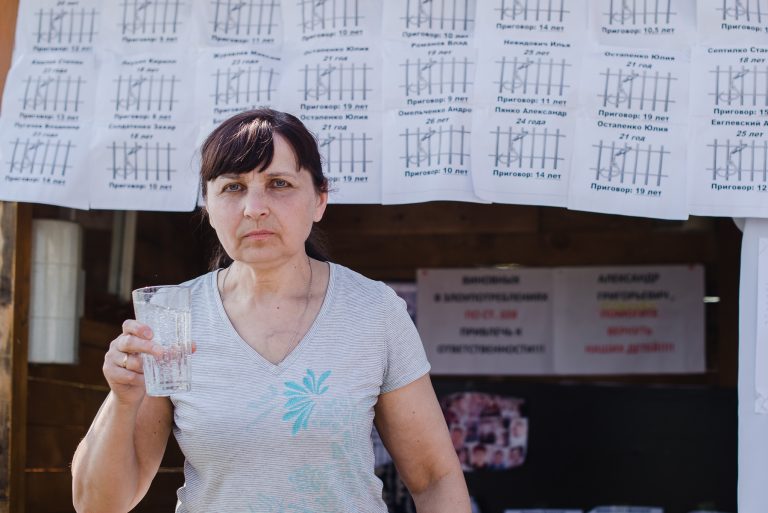Women’s Hunger Strike in Belarus Protests Harsh Anti-Marijuana Laws
More than a dozen Belarusian women have participated in a hunger strike for 10 days, hoping for the release of their sons, husbands, grandsons, and other relatives from imprisonment or drug-related charges.

The “Mothers 328,” named after Article 328 of the Belarusian Criminal Code, began fasting Friday, April 26, 2018, in Kalinkavichy and Ostrov to protest Belarus’ harsh drug laws. Relatives of the women have prison sentences of five to 25 years.
The women want to meet with Belarusian President of Alexander Lukashenko. They call the strike “a step of desperation.”
On Thursday, April 25, 2018, the day before the protest began, the hunger strikers handed their appeals to the city executive committee, which was forwarded to Prosecutor-General Alyaksandr Kanyuk’s office.
Belarus’ drug war
Belarus was once a Soviet Union republic, though the country has shied away from Russia since its annexation of Crimea in 2014. Despite showing signs of aligning with the European Union — releasing political prisoners, abandoning a highly unpopular “parasite tax” on unemployed residents — Belarus maintains tough anti-drug laws.
This is partially attributed to harsh drug laws and Soviet-era anti-cannabis propaganda from Lukashenko’s government. Lukashenko is the first, and only, President of Belarus, having served five terms since the passage of the post-Soviet Union Constitution in 1994. Lukashenko’s authoritarian system of government is described by British author and journalist Peter Pomerantsev as the “last dictatorship in Europe.”
Belarus’ penal code has no distinction between categories of drugs, meaning possession of cannabis and heroin are prosecuted with the same penalties. According to Legalize Belarus, a youth-led campaign to end Belarus’ drug war, more than 15,000 people have been imprisoned for drug-related crimes, many for minor cannabis possession resulting in five- to eight-year prison sentences.
Such petty possession cases see Belarusian prosecutors push for trafficking charges that guarantee a minimum prison sentence of five years. According to Legalize Belarus, possession of 5 grams of cannabis allows accused offenders to be charged with “intention to distribute.” The Belarusian judiciary has also been called into question by relatives of the convicted for its lack of transparency in its investigations, weak evidence, and cruel court proceedings.
In 2014, after a January poppy seed ban resulted in a reduction in opiate consumption, Belarus saw a rise in synthetic drug use. Also known as “spice,” these synthetic drugs have caused a spike in overdoses and drug-related deaths. In December 2014, the Lukashenka administration responded with a decree that raised the maximum sentence for drug trafficking to 25 years and lowered the criminal liability age to 14.
In response to what opponents call the oppressive nature and widespread reach of Lukashenko’s decree, human rights advocates are fighting for even modest reconsiderations of Belarus’ strict laws.
Hunger strikes continue
Seven of the hunger strikers met with presidential envoy Natallya Kahanava on Wednesday, May 2, 2018, to advocate for more lenient sentences for both their family members and the public at large. A spokesperson for the movement reported that by the sixth day, the mothers were beginning to feel the full effects of starvation — irregular blood pressure, shortness of breath, dizziness, according to Euroradio.fm
Hunger strikers were scheduled to meet with Prosecutor-General Alyaksandr Kanyuk two days later, but the meeting was canceled abruptly.
The following day, an ambulance visited the seven hunger strikers in Kalinkavichy, who reported that they continued to feel ill with critically low blood sugar levels. Liudzmila Pimenauskaya, a 66-year-old woman who took part in the strike for her grandson, decided to stop the hunger strike for health-related reasons, and was taken home by relatives.
Lukashenko’s administration did not comment on the matter, and no further meetings have been scheduled.
The women continue their hunger strike.

Можно, если осторожно
Вступай в наш клуб за гуманную наркополитику. Твои данные не будут переданы третьим лицам.